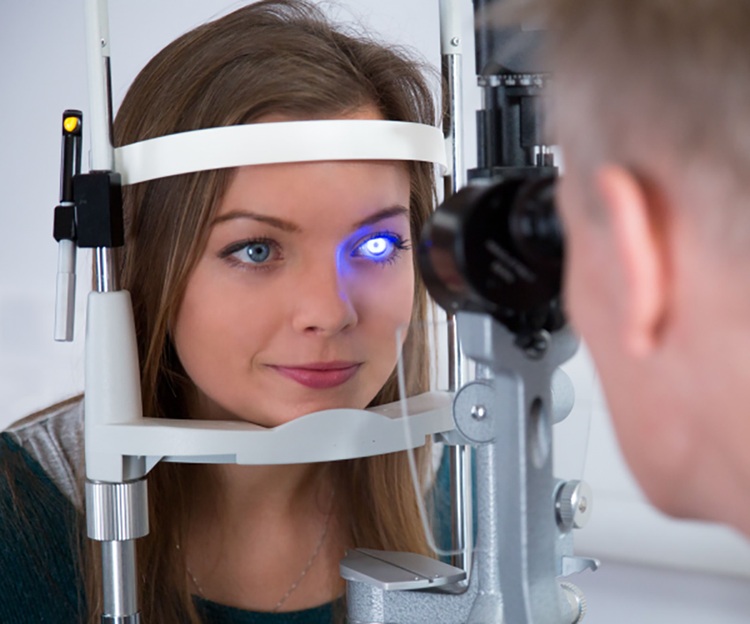Understanding Adult ADHD: Habits, Symptoms and Non-Medication Approaches
Are you often forgetful or struggling with procrastination? Many adults with ADHD experience these challenges without recognizing their connection to attention disorders. This guide explores common habits and symptoms in adult ADHD, while examining effective non-medication approaches to manage daily life. Remember to consult healthcare professionals for personalized advice.

Attention Deficit Hyperactivity Disorder in adults presents unique challenges that extend far beyond the stereotypical image of restless children. Many adults live with undiagnosed ADHD, attributing their struggles with focus, organization, and time management to personal shortcomings rather than recognizing them as symptoms of a neurological condition. Understanding the nuanced ways ADHD manifests in adulthood is crucial for proper identification and effective management.
The adult brain with ADHD operates differently, affecting executive functions that govern planning, prioritization, and impulse control. These differences often become more apparent as life demands increase with career responsibilities, relationships, and independent living. Unlike childhood presentations that may be more obvious, adult ADHD symptoms can be subtle and easily mistaken for personality traits or character flaws.
Identifying ADHD Habits in Adults
Adult ADHD habits often develop as coping mechanisms or manifest as persistent behavioral patterns that interfere with daily functioning. Common habits include chronic procrastination, where tasks are repeatedly delayed despite good intentions and awareness of consequences. Many adults with ADHD develop hyperfocus tendencies, becoming intensely absorbed in activities of interest while neglecting other responsibilities.
Time blindness represents another significant habit, where individuals consistently underestimate how long tasks will take or lose track of time entirely. This often leads to chronic lateness, missed deadlines, and difficulty maintaining schedules. Additionally, many adults with ADHD engage in fidgeting behaviors, such as leg bouncing, pen clicking, or hair twirling, which serve as self-regulation mechanisms to maintain focus.
Organizational habits also reveal ADHD patterns, including creating elaborate systems that are rarely maintained, accumulating clutter despite repeated attempts to organize, and difficulty prioritizing tasks effectively. These habits often frustrate both the individual and those around them, particularly when they appear inconsistent with the person’s intelligence or capabilities in other areas.
Understanding Inattentive ADHD Symptoms
Inattentive ADHD, previously known as ADD, presents without the hyperactive component that makes other ADHD types more obvious. Adults with inattentive ADHD often appear daydreamy, distracted, or simply unmotivated, leading to frequent misdiagnosis or complete oversight of their condition.
Key symptoms include difficulty sustaining attention during tasks or conversations, frequent mental fatigue from the effort required to focus, and a tendency to avoid or procrastinate on tasks requiring sustained mental effort. Many individuals report feeling like they’re listening through a fog during meetings or conversations, struggling to retain information despite their best efforts.
Inattentive symptoms also include frequent careless mistakes in work or other activities, not due to lack of knowledge but rather difficulty maintaining consistent attention to detail. Many adults describe feeling overwhelmed by multiple tasks or instructions, even when each individual component seems manageable. This type of ADHD is particularly common in women and often goes undiagnosed until adulthood.
Exploring Non-Medication Management Strategies
While medication can be effective for many individuals with ADHD, numerous non-medication approaches offer significant benefits for managing symptoms. Cognitive Behavioral Therapy specifically designed for ADHD helps individuals develop practical skills for organization, time management, and emotional regulation. This therapeutic approach focuses on identifying problematic thought patterns and developing concrete strategies for daily challenges.
Environmental modifications play a crucial role in non-medication management. Creating structured routines, using visual reminders and calendars, and minimizing distractions in work and living spaces can significantly improve functioning. Many adults benefit from breaking large tasks into smaller, manageable steps and using timers or apps to maintain focus during work sessions.
Lifestyle interventions also prove highly effective. Regular exercise, particularly aerobic activities, can improve focus and reduce hyperactivity symptoms. Adequate sleep, consistent meal timing, and stress management techniques like meditation or mindfulness practices contribute to better symptom management. Some individuals find that dietary modifications, such as reducing processed foods or identifying food sensitivities, help improve their symptoms.
Addressing Forgetfulness and Procrastination
Forgetfulness and procrastination represent two of the most challenging aspects of adult ADHD, often creating significant stress in personal and professional relationships. Effective strategies for managing forgetfulness include using external memory aids such as smartphone apps, written lists, and reminder systems. Creating designated spaces for important items and establishing consistent routines for daily activities can reduce the mental load of remembering.
Procrastination management requires understanding the underlying causes, which often include fear of failure, perfectionism, or feeling overwhelmed by task complexity. Breaking tasks into smaller components, using the “two-minute rule” for quick tasks, and implementing reward systems can help overcome procrastination tendencies. Many individuals benefit from body doubling, where they work alongside others to maintain accountability and focus.
Time management strategies include using visual schedules, setting multiple alarms for important events, and building buffer time into schedules to accommodate ADHD-related delays. Learning to estimate time more accurately through practice and feedback helps individuals become more reliable and reduces stress associated with chronic lateness.
Differentiating ADHD from Similar Behaviors
Distinguishing ADHD from other conditions or temporary life circumstances requires careful consideration of symptom patterns, duration, and impact on functioning. Unlike situational stress or depression, ADHD symptoms typically persist across multiple life domains and have been present since childhood, even if not previously recognized.
Anxiety and ADHD often co-occur and can present similar symptoms such as difficulty concentrating and restlessness. However, ADHD-related attention difficulties stem from neurological differences in executive functioning, while anxiety-related concentration problems typically result from worry and rumination. Professional evaluation can help distinguish between these conditions and identify any co-occurring disorders.
Other conditions that may mimic ADHD include sleep disorders, thyroid dysfunction, and certain medications’ side effects. Chronic stress, major life transitions, and substance use can also create ADHD-like symptoms. A comprehensive evaluation considers medical history, current life circumstances, and detailed symptom assessment to ensure accurate diagnosis and appropriate treatment planning.
| Management Approach | Provider Type | Cost Estimation |
|---|---|---|
| ADHD Coaching | Certified ADHD Coaches | $75-150 per session |
| Cognitive Behavioral Therapy | Licensed Therapists | $100-200 per session |
| Psychological Testing | Psychologists | $1,500-3,000 complete evaluation |
| Mindfulness Training | Meditation Instructors | $20-50 per class |
| Organizational Consulting | Professional Organizers | $50-100 per hour |
Prices, rates, or cost estimates mentioned in this article are based on the latest available information but may change over time. Independent research is advised before making financial decisions.
Understanding adult ADHD requires recognizing that it manifests differently than childhood presentations and affects individuals across various life domains. While challenges with attention, organization, and impulse control can significantly impact daily functioning, numerous effective management strategies exist beyond medication. Through proper identification of symptoms, implementation of practical coping strategies, and appropriate professional support, adults with ADHD can develop skills to manage their symptoms effectively and lead fulfilling, productive lives. The key lies in understanding that ADHD represents a neurological difference rather than a personal failing, opening the door to compassionate self-awareness and targeted intervention strategies.



